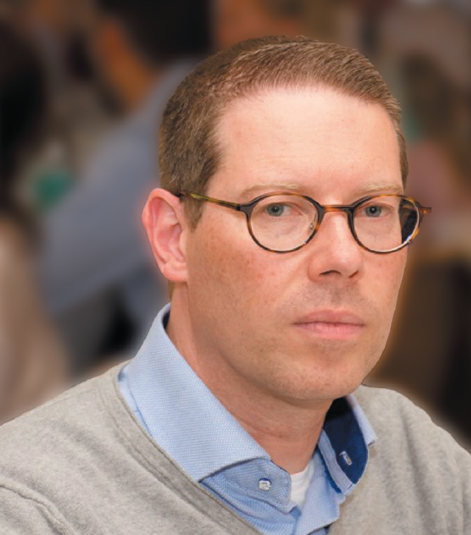The use of emotional freedom techniques to reduce fear of cancer recurrence

Dr. Philip Debruyne (AZ Groeninge) has been awarded with the 2020 Pfizer Oncology Award for his project which aims to examine the efficacy of Emotional Freedom Techniques (EFT) to reduce the fear of cancer recurrence.
Emotional freedom techniques and fear of cancer recurrence
Although there are over a quarter of a million cancer survivors in Belgium, the mental wellbeing and quality of life of patients after their cancer diagnosis and treatment is often poorly addressed. As a result, many cancer survivors live with a fear of cancer recurrence (FCR) and approximately one third of cancer survivors indicate they would need professional help to cope with the fear, worry or concern that their cancer may return or progress. Although cognitive behaviour therapy, mindfulness and yoga might be valuable in relieving stress, anxiety and depression in these patients, these techniques usually require an intensive program. Emotional freedom techniques (EFT) is an easy to learn self-help tool that might be a suitable alternative. EFT was originally developed to manage anxieties and phobias and is comprised of a somatic and a cognitive component. The somatic component includes acupressure (specific points on the head, face, collarbone and under the arm) while the cognitive component refers to a psychological tool in which one addresses a problem, complaint, worry or concern out loud. With these techniques, a conditioned response helps to induce tolerance to the stimulus that causes anxiety. Dr. Debruyne further explains: “The trial will be conducted on behalf of the BSMO Cancer Survivorship Task Force and builds on our previous research trial examining the effect of EFT as an intervention strategy to reduce patient-reported cognitive complaints in cancer survivors (EMOTICON: NCT02771028). In this trial, we observed positive effects of EFT on secondary endpoints such as psychological distress and emotional wellbeing. As FCR is a major problem in cancer survivors and there is no widely implemented evidence-based strategy to address FCR, it is definitely worthwhile to try these emotional freedom techniques now also for this group of patients.”
Study design
Before participation, cancer patients who were previously treated with surgery, chemotherapy, radiotherapy, anti-hormonal or targeted therapy, need to complete the Cancer Worry Scale (CWS). In total, eight items are rated on a 4-point scale ranging from 1 (never) to 4 (almost always) with lower scores indicating less FCR. When scoring 14 or more, patients are diagnosed with FCR and can participate to the trial. Subsequently, they will be randomised to either the intervention or wait-list control group. In total, 43 patients in each study cohort are required. Patients in the intervention group take off with 8 weeks of practicing EFT, at least once a day, while the wait-list control group will only start their 8 weeks of EFT practice, after a waiting period of 8 weeks. Importantly, the trial is designed as a remote multicentre randomised trial and EFT training will thus be offered by an internet-based approach that allows the investigators to perform the trial with one instructor/coordinator only. This instructor is formally trained and acquired the AAMET Emotional Freedom Techniques level 1 certificate. Patients can make use of remotely organised personal contact sessions with the instructor as well as background information and instruction videos made available on an online EFT platform. Two sessions are foreseen to introduce and follow-up on the EFT practice but additional contact sessions (although virtual) with the instructor/coordinator of the trial, can be made by patients who are in need of extra support. At study entry, at week 8 (primary outcome) and at week 16, patients will be asked to complete the CWS and other questionnaires to measure the efficacy of EFT on the reduction of psychological distress, fatigue, emotional wellbeing, quality of life, health status and patients’ professional lives. “We aim to start recruiting patients in 2021 and thus far, six centres have already indicated their willingness to participate in the trial; AZ Groeninge Kortrijk, UZ Brussel (Dr. C. Fontaine), AZ Klina Brasschaat (Dr. C. Langenaeken), Jessa Ziekenhuis Hasselt (Pr. J. Mebis), AZ Glorieux Ronse (Dr. F. Vanryckegem) and UZ Gent (Pr. T. Boterberg). Nevertheless, other centres that would put themselves forward will also be offered the opportunity to participate. Depending on how fast patients will be recruited, results can be expected after roughly two years. We are, of course, very grateful to win the Pfizer Oncology Award and will spend this budget mainly on personnel costs for the responsible project coordinator for writing the protocol, obtaining approval from ethic committees, data collection and analysis, etc. The rest of the budget will be used for the development of the EFT online platform.”